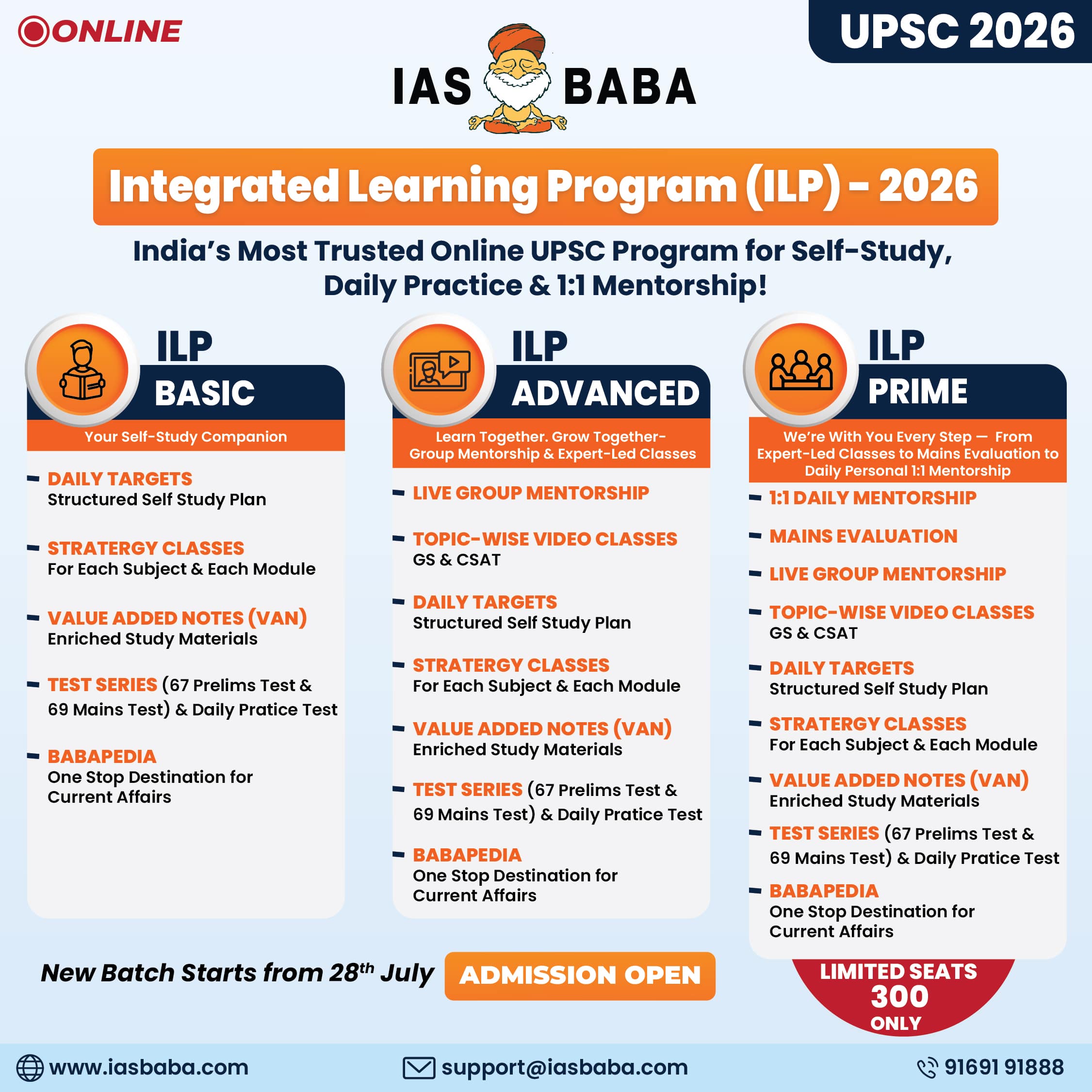Indian Polity & Constitution
Context:
- The recently concluded monsoon session of Parliament (July-August), saw the Competition (Amendment) Bill, 2022 and the Electricity (Amendment) Bill, 2022 being sent to the Standing Committee of Parliament for detailed examination in the wake of constant criticism by the Opposition in previous sessions.
In this context let us understand the meaning and roles of parliamentary committees.
What are Parliamentary committees?
- The Parliamentary committees are established to study and deal with various matters that cannot be directly handled by the legislature due to their volume.
- They monitor the functioning of the executive branch and provide legislature with various policy input, playing an important role in Indian democracy.
- They act as ‘Mini-Parliament’: smaller units of MPs from both Houses, across political parties, that function throughout the year.
Types of Parliamentary committees—Standing Committees and Ad Hoc Committees.
- Standing Committees : Permanent (constituted every year or periodically) and work on a continuous basis. They can be categorized into following broad groups
- Financial Committees
- Departmental Standing Committees (24)
- Committees to Inquire
- Committees to Scrutinise and Control
- Committees Relating to the Day-to-Day Business of the House
- House-Keeping Committees or Service Committees
- Ad Hoc Committees: Temporary and cease to exist on completion of the task assigned.
- Ad hoc committees can be divided into two categories, that is, Inquiry Committee and Advisory Committee.
Departmental Standing Committees (DSCs) of Parliament in detail:
- Departmental Standing Committees are where a proposed law is discussed in detail.
- Parliament has 24 Department Related Parliamentary Standing Committees (DRSC), comprising members of the Parliament of both the Lok Sabha and the Rajya Sabha in the ratio 2:1, which are duly constituted by the Speaker of the Lok Sabha and the Chairman of the Rajya Sabha, jointly.
Role of Standing Committees :
- Main role of the department-related standing committees is to ensure the accountability of government to the Parliament through more detailed consideration of measures in these committees, its intention is not to weaken or criticize the administration or government but to strengthen it by investing in it more Parliamentary support.
- Hence the main role of departmental standing committees is to secure more accountability of the executives i.e., the Council of Ministers to the Parliament.
- These Departmental standing committees are working particularly while scrutinizing the Budget.
Standing Committees – Members:
- Each committee consists of 31 members, of which 21 are nominated by the Speaker of Lok Sabha from amongst its members and 10 are nominated by the Chairman of Rajya Sabha from amongst its members. The tenure of each of the members is for 1 year.
- A minister cannot hold the committee’s membership. If a member after assuming his membership becomes a minister, he ceases to be a member of the respective committee.
Relevant parliamentary data on the working of Parliament and its committees:
- The functioning of the monsoon session of Parliament this year bears testimony to this fact: the Lok Sabha’s productivity was 47% and the Rajya Sabha only 42%.
- The percentage of Bills having been referred to the DRSCs during the tenures of the 14th (2004-2009), 15th (2009-2014) and 16th Lok Sabha (2014-2019) has been 60%, 71% and 27%, respectively.
Difference between Committee versus Parliament
- It has been alleged that Bills which are not being referred to the parliamentary committees, are not examined properly.
- As proof of this, the case of the three Farm Bills is cited as they were passed without being referred to the DRSC and had to be withdrawn later.
- The examination of the Bills by the parliamentary committees is more to the benefit of the Government than the Opposition.
- The committee meetings are in camera and, therefore, the meetings are held in a comparatively congenial atmosphere of bonhomie and cordiality than they would be in Parliament.
Way forward:
It has been observed that the reluctance to refer the Bills to the committee arises more out of inaction and ignorance of the Ministry concerned, and rarely out of ideological or policy reasons. So, the following changes could be suggested to be made into procedures meant for consideration of Bills.
- The Speaker of the Lok Sabha and the Chairman of the Rajya Sabha have powers to refer Bills to a DRSC of Parliament. Make this a compulsory/ automatic requirement.
- All discussions in the Parliamentary Standing Committee should be frank and free.
- For this, it may be provided that during the discussions of the committee meetings, no whip of the party would apply to them. In any case, they have the liberty to vote in favour or against the Bill in Parliament.
- The Speaker/Chairman should have the right to fix a time limit, sometimes even stringent, if the government of the day asks for it and the demand is found to be reasonable by the Speaker/Chairman.
- But to deal with just political exigencies, it can be provided that in case the committee fails to give its recommendation within the approved/extended time, the Bill may be put up before the House concerned directly.
- To ensure quality work in the committees, experts in the field may be invited who could bring with them the necessary domain knowledge and also help introduce the latest developments and trends in that field from worldwide.
The sanctity and good work of ‘mini-Parliaments’ must be continued by both the government and the opposition, which will strengthen Parliamentary democracy.
Source: The Hindu














